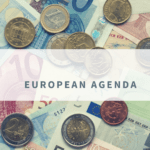Ambassadors of member states to the EU agreed the Council’s position on the 2023 EU draft budget. In total, the Council’s position for next year’s budget amounts to € 183.95 billion in commitments and € 165.74 billion in payments. Compared to the budget agreed by the Council and the European Parliament for 2022, this is an increase of +8.29% in commitments and a decrease of -3.02% in payments.
Overall, the Council takes a prudent approach given the volatile context in which the EU is operating. Keeping margins in the budget as room for manoeuvre has proved very useful in the past. Member states stress the importance of ensuring that there will be sufficient margin in the budget to face uncertainties related to the Ukrainian crisis and inflation.

Draft general budget of the European Union for the financial year 2023: Council position
|
Statement on the European Parliament’s own section of the EU budget
In this statement, the Council underlines that the ceiling for heading 7 of the Multiannual Financial Framework 2021-2027 is founded on the premise that all EU institutions adopt a comprehensive and targeted approach for stabilizing the number of staff and reducing administrative expenditure.
The Council recalls that the European Parliament already in the annual budget for 2022 requested and obtained additional 142 posts to its establishment plan as well as 180 external staff and recalls in this regard the Council statement of 7 December 2021. This year, the Parliament’s statement of expenditure and establishment plan for 2023 includes a request for 52 additional establishment plan posts and 116 additional accredited parliamentary assistants.
This request comes within the context of high inflation rates, where the respect for the ceiling of heading 7 in 2023 is in jeopardy, thus necessitating that all institutions exercise self-restraint, in line with the obligation to comply with the annual expenditure ceilings. In this context, the Parliament’s request further increases the pressure on heading 7, while leaving to the other institutions the effort to bear the burden of containing their administrative expenditure. It is therefore not compatible with the Parliament’s obligations under Article 2 of the MFF regulation and it runs counter to points 129 and 130 of the European Council conclusions of 17 to 21 July 2020 on a stable level of staffing in the institutions.

Council adopts additional €1 billion assistance to Ukraine
|
Respecting the Gentlemen’s Agreement rationale, including the institutional balance between the Parliament and the Council and the respect of the MFF ceilings, the Council calls on the Parliament to follow the approach adopted by the Council and ensure respect for the heading 7 ceiling. It recalls that the Council intends to respect a stable level of staffing and applies a higher abatement (vacancy) rate on its own administrative expenditure.
In light of the above, the Council expresses its strong reserves on the EP´s statement of expenditure and the establishment plan for 2023. The Council will focus further on these elements during the negotiations on the Union’s annual budget for 2023.
More information:







Leave a Reply